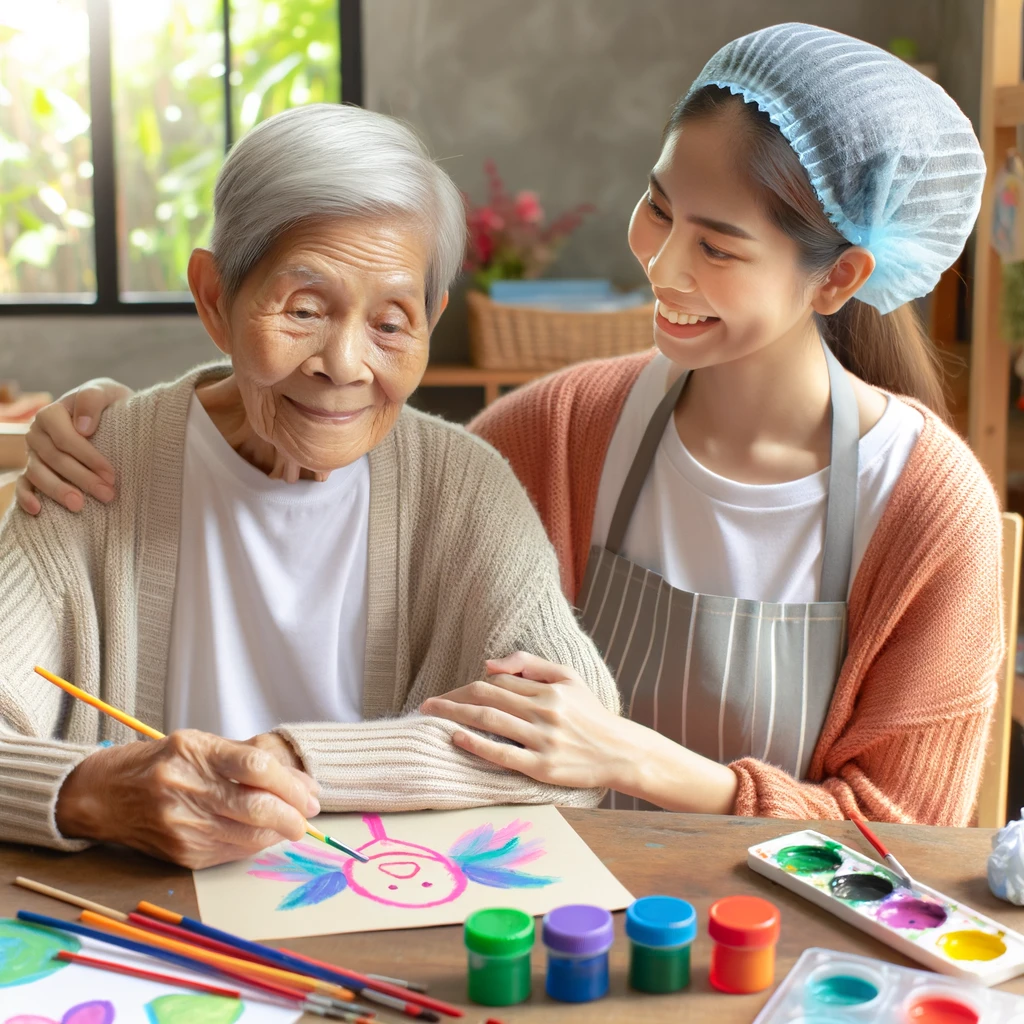Caregiving for someone with dementia presents unique challenges, requiring patience, understanding, and creativity. As the condition progresses, it affects memory, thinking, and behavior, which means caregivers must constantly adapt their approach. In this blog, we’ll explore various caregiving ideas for dementia that can help improve both the quality of life for those affected and the well-being of their caregivers. These ideas can transform the caregiving experience, offering solutions that make day-to-day life more manageable and meaningful.
Routine and Familiarity
Familiar Patterns Create Stability

Establishing a routine is one of the most effective caregiving ideas for dementia. Individuals with dementia thrive in environments where there is a sense of predictability. This reduces anxiety and confusion, helping them feel more in control. Regularly scheduled activities such as meals, bathing, or hobbies create a rhythm that provides comfort.
Consider labeling rooms or objects in the home to further assist in building familiarity. For example, a sign on the bathroom door or labeled drawers can help those with dementia maintain their independence longer by giving them subtle cues about their surroundings.
Meaningful Activities Ideas
Connecting Beyond Words

While dementia may impair communication, engaging in activities that resonate with the person’s interests can help strengthen emotional connections. Music therapy, arts and crafts, or even simple gardening can evoke positive memories and allow individuals to express themselves in non-verbal ways.
For caregivers, it’s important to tailor activities to the individual’s abilities and preferences. Participating in these activities not only brings joy to the person with dementia but also helps caregivers forge a deeper bond by creating shared experiences.
Utilize Memory Aids
Making Memory Loss More Manageable

Memory loss is one of the most prominent symptoms of dementia, but there are caregiving ideas for dementia that can help. Memory aids, such as calendars, to-do lists, and medication reminders, offer gentle guidance without overwhelming the individual. A whiteboard in a common area can serve as a daily reminder for appointments, activities, and family visits.
For individuals struggling with names and faces, creating a photo board with names of family members can help maintain personal connections. These memory aids provide structure and reduce frustration for both the individual and their caregiver.
Supportive Environment Ideas
Safety First, Comfort Always

When caregiving for dementia family members, ensuring their environment is safe is critical. Individuals with dementia may wander or become disoriented, so creating a home that minimizes risks is essential. Installing grab bars in bathrooms, securing sharp objects, and adding locks to hazardous areas such as the kitchen can prevent accidents.
Additionally, consider using tracking devices or alarms to alert caregivers if their loved one leaves the house unsupervised. By making the home environment both safe and supportive, caregivers can reduce the stress and anxiety associated with caring for someone with dementia.
Self-Care Ideas
You Can’t Pour From an Empty Cup

Caregiving for dementia family members can be emotionally and physically exhausting, which is why self-care is crucial. It’s easy to focus all attention on the person with dementia, but taking time to recharge ensures you can continue providing the best care possible. Scheduling breaks, exercising, and seeking support from other caregivers are all vital to maintaining your health and well-being.
Joining a support group, whether online or in person, can provide an outlet for sharing challenges, seeking advice, and finding encouragement from others who understand what you’re going through. Remember, caring for yourself enables you to care more effectively for your loved one.
Bringing It All Together
Expanding the boundaries of care for dementia requires creativity, flexibility, and compassion. From establishing routines to utilizing memory aids, caregiving ideas for dementia aim to make life smoother for both the individual and the caregiver. By engaging in meaningful activities, caregivers can form stronger connections, while ensuring a safe environment provides peace of mind.
It’s important to remember that self-care is just as crucial as the care you give. Balancing your needs with those of your loved one will ensure you have the strength and resilience to continue caregiving in the long term. By integrating these ideas into your daily routine, you can enhance the caregiving experience and foster a more nurturing, supportive environment for everyone involved.
Ultimately, caregiving for dementia family members is a journey that requires patience and adaptability. As you continue to expand the boundaries of care, these strategies will help you navigate the challenges and embrace the rewarding moments along the way.






